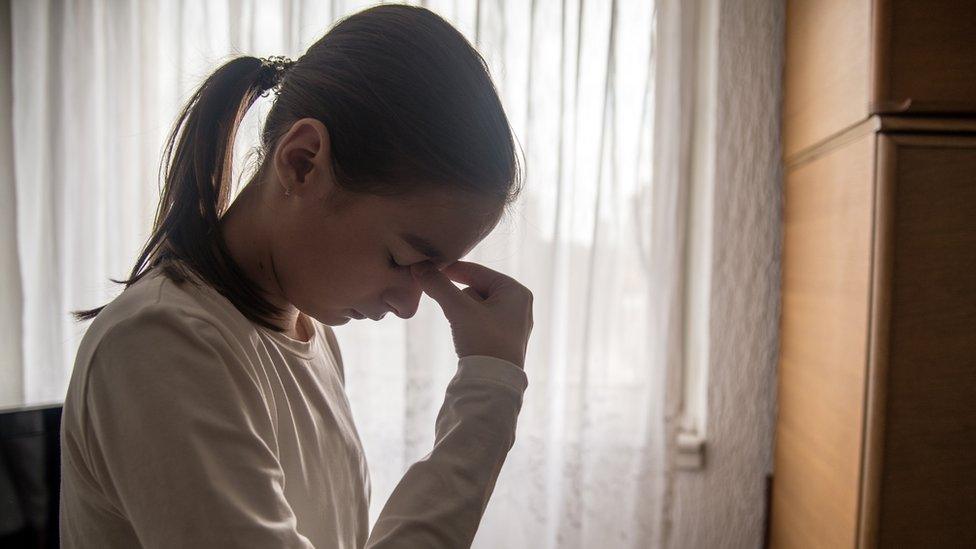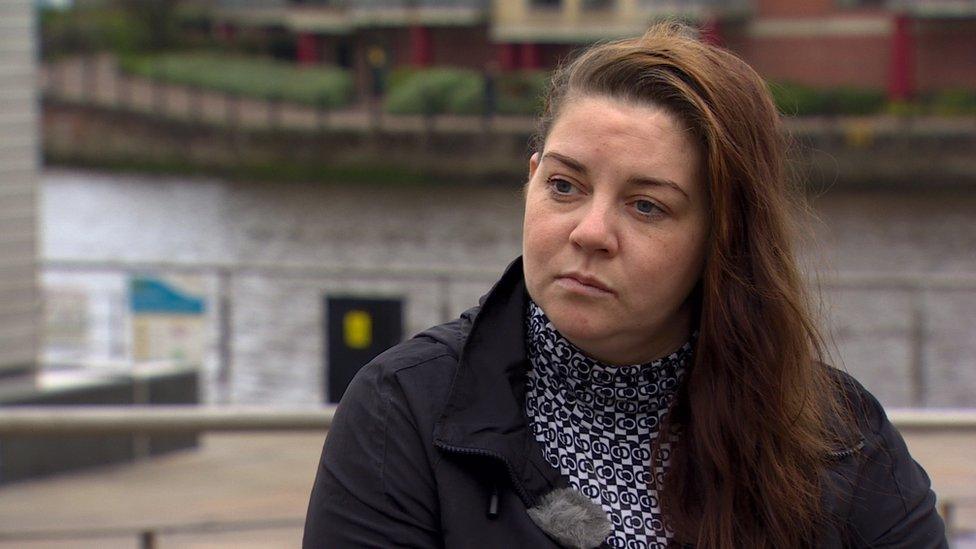Domestic abuse issues should be taught at school, says NI judge
- Published

Children and young people should be educated about domestic violence in school, a district judge has said.
Judge Barney McElholm said the number of domestic abuse cases coming before him are continuing to rise.
He warned social media influencers like Andrew Tate are contributing to an overall lack of respect for women and girls.
On Monday, a woman who suffered domestic abuse said she feels let down by Northern Ireland's justice system.
Louise Gilmore suffered several injuries, including a broken nose, missing teeth and severe bruising, after she was attacked by her then-partner in November 2019.
James Joseph McKinley, 32, of Henderson Avenue in Belfast, was sentenced to two-and-a-half years in prison suspended for three years.
Mr McElholm, who is based at Londonderry Magistrates' Court, called for young people to be taught about the dangers of domestic abuse in school.
"There needs to be a coordinated, planned change to the school curriculum whereby the school curriculum is to focus on the whole question of domestic violence, abuse, the wider question of respect for each other as human beings," he told BBC News NI.
"If that's successful that will lead to less offending."

Barney McElholm is a district judge based at Londonderry Magistrates' Court
In September 2022, 33,108 domestic abuse incidents were reported in Northern Ireland over a 12-month period.
Domestic abuse accounts for 20% of all crime, and Mr McElholm said he has made this a career focus.
"Domestic abuse is like an evil ugly plant that spreads its roots throughout the whole of society, it can go down from generation-to-generation," he said.
Lately, he is concerned about the rise online of social media influencers, such as Andrew Tate, who has been banned from some sites like TikTok for promoting misogyny.
"The things we see on a daily basis here: One partner taking the other's phones, checking through it for messages and calls, putting a tracker on the phone to see where they physically are when they're not in the house, not allowing them to meet up or talk with their old friends, their family."
Strangulation 'weapon of choice'
Mr McElholm said he has noticed an increase in the involvement of non-fatal strangulation in domestic violence cases.
He described it as "the perpetrators weapon of choice".
"In a lot of cases there no marks left, it is a way of controlling and instilling fear into the victim," Mr McElholm said.

Louise Gilmore suffered several injuries following an assault in November 2019
He added it is a tactic being used by abusers more frequently, and it is difficult to prove and prosecute.
"It can only be dealt with in the magistrates' court, it's not an indictable offence, so that is a very poor situation and needs to be remedied."
Strangulation cases should go before the crown court where a sentence can be up to 14 years, Mr McElholm suggested.
Three women tell BBC News NI about their experiences with non-fatal strangulation
Non-fatal strangulation became a standalone offence in Northern Ireland last year.
It is seen as a red flag for escalating violence in intimate partner relationships and a possible indicator for future risk of murder.
But it has still to come into effect due in part to a lack of devolved government, campaigners have said.
This means perpetrators cannot be charged or tried in court.
The Department of Justice previously said it was working towards the commencement of the new offence by the summer of 2023.
Related topics
- Published3 April 2023

- Published1 February 2023
